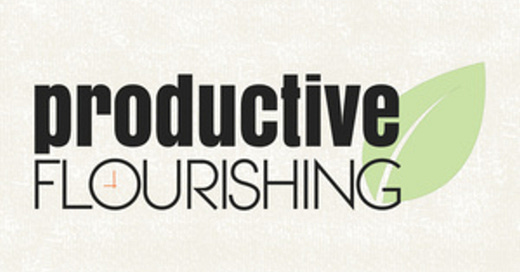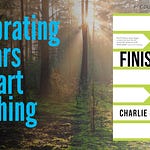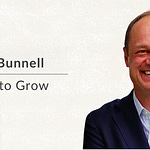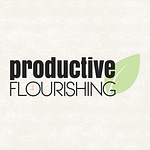Christina is an attorney who wanted a more creative path, and started The Contract Shop, a contract template store for creative entrepreneurs, wedding professionals, and coaches. In this episode, Christina and Charlie discuss her transition from the risk-averse field of law into entrepreneurship, the challenges she faces as a new entrepreneur, and how the way many of us think about the legal aspects of our business is actually out of sync with reality.
Key Takeaways:
[2:05] - The legal aspect of a creative business can be a way to enhance relationships, rather than create adversarial and complicated relationships.
[2:35] - Christina works as an attorney, but her entrepreneurial side took off by accident. When she was running her law firm, she encountered situations where her friends needed legal help, but not necessarily her full time or attention as an attorney. At the same time, she had started to accumulate different templates that she was able to share with her friends, and it turned into a nuanced template business called The Contract Shop.
[4:30] - As a tip for all creative entrepreneurs, if you’re looking for additional revenue streams, look around for your trap content that could have market value. The best products are based on need; Christina didn’t think much of her templates, but they’ve become an asset she built an entire business around.
[7:55] - Christina talks about risk - as an attorney, they were taught that they needed to be risk averse. This is opposite in nature from the entrepreneur, where sometimes you have to take a risk to be successful.
[14:30] - Out of law school, Christina found a job but was worn thin from law school, working full time, studying for the bar, and jumping in to The Contract Shop. As an escape, she started a yoga blog, and incorporated legal articles and business stuff on this blog.
[18:40] - Even though she’s working just as much as (or more than) before when everything was taking off, there is a lot more freedom now that Christina is working for herself. If you find work that lights you up, it changes everything. It’s much easier to get stuff done when it’s something that ties into who you are and the work you’re wanting to do in the world.
[21:55] - Christina talks about some of the things she missed about working for someone else when she first started working for herself. The biggest thing was having a boss, and someone to tell her what to do to advance her business. She was also so focused on seeing what other people were doing that it was difficult to focus on her own stuff. She has since narrowed it down to one or two people to follow at a time and is staying focused on her own business. If you’re a new entrepreneur and you’re finding yourself in the same “honeymoon” or “deinstitutional” period, know that it’s normal, but try get yourself out of it as quickly as you can because it can be an expensive period of your business.
[27:40] - When you first start working for yourself, there comes a point at which you have to start defining your own goals. Christina uses a tool from one of her clients called PowerSheets to help define where she’s been and where she’s going. One thing that works well for her is putting the things she’s thinking about or working through down on paper, and trusting that the sequence will work itself out for them to come to fruition.
[30:40] - Strategic planning is a skill, like financial planning, and not one that everyone learns. Coming into your own business, they may be things that you have to learn, but the beauty of it is that they are skills that can be learned by normal people. If long-term planning is not a strong suit for you, planning smaller is okay.
[34:45] - Creative people and entrepreneurs have a bit of fear surrounding the legal aspects of their business. Some people don’t touch it or take it super seriously. Christina’s approach uses the legal aspect to enhance relationships. If people are too cautious about this aspect, they may never get their product out there. Christina encourages people to just start doing it, even if all the legal I’s and T’s aren’t dotted and crossed.
[38:50] - Christina’s two big tips: 1) The fastest way to get yourself into legal trouble in today’s social media climate is to use someone else’s photo as your own without permission. Pay attention to what other people’s intellectual property is and avoid infringing someone’s copyright. Christina has actually garnered relationships reaching out to people to ask if she could use their photos. 2) If you’re not clear on what you expect from your clients and what they can expect from you, that’s a great way to start losing money through refund requests, etc. Instead of over-promising and under-delivering, make sure you’re under-promising and over-delivering, and have some kind of contract that memorializes the expectations for both parties.
[42:10] - Usually first-time offenders will receive a cease and desist letter. If it’s the second or third time you’ll be on higher watch. You can get into trouble really quickly if you go up against any of the big guys.
[43:30] - If these legal aspects are what’s scaring you from getting started, the risk and the exposure is not as big as you might think. It’s better to get out there and start doing something, and then if you encounter problems make sure you address them. Don’t let it keep you from creating something. You can also invest in business insurance as a form of protection.
[45:20] - Another aspect of working for yourself is the contracts. Most peoples’ only experience with an attorney is in an unfortunate situation or what’s portrayed in the media, so business owners may be afraid to address contracts with their clients. Show them that contracts are actually for the client’s benefit, and make sure you walk them through the contract and talk them through how things could play out. If you show them that you’re an experienced professional on the terms, it will be a better experience for everyone. There are ways to present the contract in a less scary way, like the client magazines Christina mentions.
[51:00] - This gives you an opportunity to show your client that you are more professional than your competition. It makes you a better salesperson and a better business person. It’s usually the first time your client is going through whatever situation it is, so having an extra touch point where you’re showing them stuff that might be obvious for you can ensure trust for the rest of your working relationship.
[53:00] - There are some common excuses Christina hears. 1. If there’s fear of confrontation, do what you can with what you have. You can send an email and a PDF. 2. If you’re worried about a client wasting your time, take a look earlier on in your sales process and see how you’re qualifying those leads, and be unapologetically yourself. 3. Money - money is a mindset issue and money can always be made. Sometimes you just have to prioritize the things that are going to move your business (or life) forward. Be mindful of which types of expenses you’re prioritizing as well.
[57:54] - Christina’s challenge to listeners is to do one thing every day for the next week, whether it takes one minute or one hour of your time, that moves your business, creative process, or your career forward.
Mentioned in This Episode:














Share this post